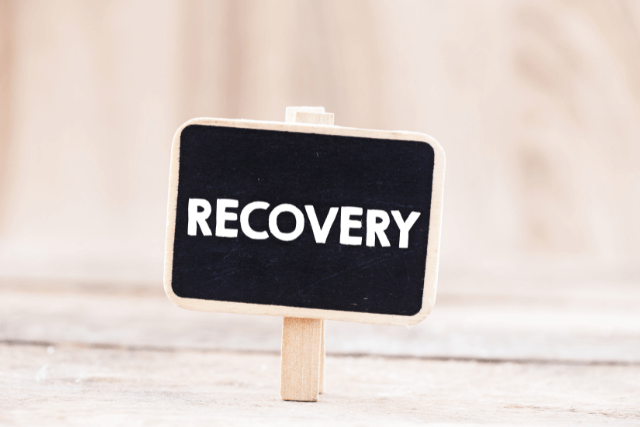Recovering from gallbladder surgery is an important process that allows your body to heal and adjust after the removal of this small but essential organ. The gallbladder plays a role in storing and releasing bile, which helps digest fats. When gallstones or other problems cause pain or health risks, surgery may be necessary. This procedure is common, safe, and highly effective, but the way you handle recovery makes a major difference in how quickly you regain your strength.
At IBI Clinic, skilled surgeons perform gallbladder removal with precision and care, ensuring patients receive the best outcomes possible. Whether you underwent laparoscopic or open surgery, focusing on proper healing strategies will improve comfort and reduce complications.
Understanding Gallbladder Removal
Gallbladder removal, also called cholecystectomy, is a surgical procedure performed to treat gallstones, gallbladder inflammation, or blockages in the bile ducts. Most patients undergo laparoscopic surgery, which uses small incisions and usually results in faster recovery. In some cases, open surgery is required, which takes longer to heal.
Recovering from gallbladder surgery requires patience and consistent care. Your body adapts to processing food without the gallbladder, and this transition period can affect your digestion and energy levels. By following post-operative instructions, you can support healing and avoid setbacks.
Gallbladder Post-Surgery Care at Home
Pain Management
Managing discomfort is one of the first steps in recovering from gallbladder surgery. Your doctor may prescribe pain medication, but many patients find relief with over-the-counter options. Always follow your surgeon’s advice on dosage and timing. Placing a small pillow against your abdomen when coughing or moving can also ease pressure.
Incision Care
Proper incision care prevents infection and speeds healing. Keep the area clean and dry, and follow your surgeon’s directions about changing dressings. Avoid soaking in bathtubs or swimming pools until your doctor confirms it is safe. Watch for signs of infection such as redness, swelling, or unusual discharge, and report them promptly.
Rest and Sleep
Adequate rest allows your body to focus on healing. Try to sleep on your back or in a slightly elevated position to reduce abdominal strain. While resting is important, short walks around your home help circulation and prevent complications such as blood clots.
Diet After Gallbladder Surgery
Dietary adjustments play a major role in recovering from gallbladder surgery. Since bile flows directly into the intestine after removal, your body may initially struggle to digest fatty foods.
Eat Small Meals
Begin with smaller, more frequent meals instead of large portions. This helps your digestive system process food more comfortably.
Choose Low-Fat Foods
Low-fat foods reduce strain on your digestive tract. Focus on lean meats, vegetables, whole grains, and fruits. Avoid fried foods, butter, heavy sauces, and high-fat dairy products.
Stay Hydrated
Water aids digestion and supports overall healing. Aim to drink plenty of fluids throughout the day.
Reintroduce Foods Gradually
Over time, you may tolerate a wider variety of foods. Introduce them slowly and track how your body responds. Keeping a food diary can help you identify triggers for discomfort.
Physical Activity After Gallbladder Surgery
Regaining movement is essential in recovering from gallbladder surgery, but it must be done carefully.
Gentle Walking
Walking improves circulation, reduces bloating, and boosts energy. Start slowly and gradually increase your distance as you feel stronger.
Avoid Heavy Lifting
Do not lift heavy objects or engage in strenuous activity for at least two to four weeks, depending on your surgeon’s instructions. Lifting too soon may strain your healing incisions.
Gradual Return to Exercise
After clearance from your doctor, you can return to regular exercise. Begin with light activities such as yoga or swimming before resuming intense workouts.
Managing Digestive Changes
Some patients experience bloating, diarrhea, or gas during recovery. These symptoms usually improve as the body adjusts.
- Eat fiber-rich foods to regulate digestion.
- Avoid carbonated drinks that may cause gas.
- Limit caffeine and alcohol until your doctor confirms it is safe.
- Try probiotics, with your doctor’s approval, to restore healthy gut bacteria.
If symptoms persist, follow up with your healthcare provider for guidance.
Emotional Health During Recovery
Recovering from gallbladder surgery is not only physical but also emotional. Some patients feel anxious about their diet or frustrated with temporary activity limits.
- Stay connected with supportive family and friends.
- Practice stress-relieving techniques such as deep breathing or meditation.
- Remember that recovery is temporary, and most patients return to normal life within a few weeks.
When to Contact Your Doctor
Although complications are rare, it is important to recognize warning signs. Contact your surgeon immediately if you experience:
- Persistent or severe abdominal pain
- Fever or chills
- Yellowing of the skin or eyes (jaundice)
- Excessive bleeding or drainage from incisions
- Persistent nausea or vomiting
Early intervention can prevent serious problems and ensure safe healing.
Long-Term Lifestyle Tips After Gallbladder Surgery
Even after you finish recovering from gallbladder surgery, maintaining a healthy lifestyle supports your digestive system.
- Follow a balanced diet rich in fiber and nutrients.
- Stay active with regular exercise.
- Maintain a healthy weight to reduce strain on your digestive system.
- Schedule routine checkups with your healthcare provider.
At IBI Clinic, our surgeons continue to guide patients even after the operation, ensuring long-term success and improved quality of life.
Conclusion: Recovering from Gallbladder Surgery
Recovering from gallbladder surgery requires commitment to proper care, diet, and gradual return to activity. By following your doctor’s advice and making healthy lifestyle choices, you can enjoy a smooth healing process. Patience and consistency are key, and with the right steps, most patients experience a full recovery within a few weeks.
If you are considering gallbladder surgery or need expert post-operative care, IBI Clinic provides skilled surgical expertise and personalized support to help you recover with confidence.










